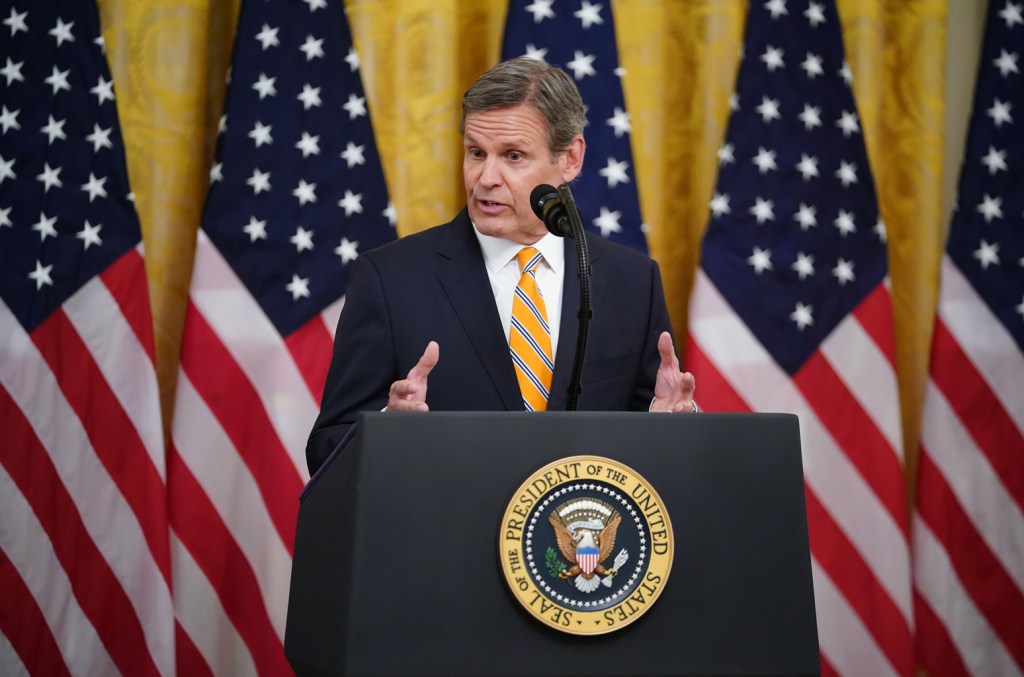Landmark ELVIS Act Builds Momentum in Tennessee House to Protect Voice & Likeness Against Unethical AI


Photo Credit: Human Artistry Campaign
The landmark ELVIS Act builds momentum in the Tennessee House to protect voice, image, and likeness against ‘irresponsible and unethical’ AI.
Filled with advocates for music creators, Tennessee continues to advance protections for the music industry with legislation to safeguard individual voice, image, and likeness against irresponsible and unethical artificial intelligence. The state’s House Banking & Consumer Affairs Subcommittee has unanimously passed the Ensuring Likeness Voice and Image Security (ELVIS) Act on Tuesday, February 13.
Tennessee Governor Bill Lee introduced the legislation last month alongside State Senate Majority Leader Jack Johnson (R-27) and House Majority Leader William Lamberth (R-44). On Tuesday, the Subcommittee heard testimony from singer-actor-author Chrissy Metz, songwriter and NSAI board member Jamie Moore, and Recording Industry Association of America (RIAA) SVP of Public Policy Jessie Richard, explaining the importance of protecting fundamental rights all people should possess to their image, likeness, and voice — especially in the era of generative AI and audio cloning.
“I can attest to the pain and fear coursing through the creative community, knowing that years of committed hard work, countless heartbreaks, sacrifice, unwavering resilience […] not to mention our very own character and reputations all can be torn down in a moment by an unaccountable deepfake,” said Metz (pictured right). “I fully support free speech, and it’s appropriate that this bill preserves all First Amendment rights. However, using someone’s voice not protected by the First Amendment should not be allowed.”
“Music is an important part of the fabric of Tennessee; it’s a part of our culture, economy — music is our lifeblood. Tennessee has always held its creators in high esteem and sought to protect their work and their livelihoods. We are at a critical part in American history and human innovation,” said Moore (pictured center). “As songwriters and artists, we spend hours scrutinizing over our human art. When a machine can take my lived experience in seconds, that is wrong. That is theft. And we need to protect against it.”
“Unscrupulous parties are abusing AI technologies, hijacking artists’ actual voices and likenesses to generate digital clones, undermining their bodies of work, and alienating their fans,” said Richard (pictured left). “The bill’s opponents that seek categorical exemptions want to allow non-consensual uses of another person’s voice and likeness in ways that are not protected by the First Amendment. Their economic interests in non-protected speech should not prevail over a person’s basic rights.”
This recent push from Tennessee lawmakers follows congressional testimony from country star Lainey Wilson and Recording Academy CEO Harvey Mason Jr., as well as nearly 300 actors, artists, musicians, and songwriters co-signing their support for similar federal protections via the bipartisan “No AI FRAUD Act.”
Link to the source article – https://www.digitalmusicnews.com/2024/02/14/landmark-elvis-act-builds-momentum-in-tennessee-house/
Recommended for you
-
Arturia KeyLab Essential mk3 â 61 Key USB MIDI Keyboard Controller with Analog Lab V Software Included
$279,00 Buy From Amazon -
Bass Glarry GIB Electric 5 String Bass Guitar Full Size Bag Strap Pick Connector Wrench Tool Sunset Color
$119,99 Buy From Amazon -
ADJ Products, MYDMX RM, DMX Light Show Storage Device Saves up to 16 Preset Shows D367
$299,17 Buy From Amazon -
Pyle USB Microphone Podcast Recording Kit – Audio Cardioid Condenser Mic w/Desktop Stand and Pop Filter – for Gaming PS4, Streaming, Podcasting, Studio, YouTube, Works w/Windows Mac PC PDMIKT120
$49,99 Buy From Amazon -
Boss FS-7 Dual Foot Switch
$64,99 Buy From Amazon -
Casio WU-BT10 Wireless Bluetooth Audio & MIDI Adapter for CDP-S and Privia PX-S Digital Pianos
$79,00 Buy From Amazon -
E-mu PROTEUS – THE King of Dance Modules – Large Original 24bit Multi-Layer WAVe/Kontakt Samples/Loops Studio Library
$14,99 Buy From Amazon -
Yamaha P225B, 88-Key Weighted Action Digital Piano with Power Supply and Sustain Pedal, Black (P225B)
$741,14 Buy From Amazon













Responses